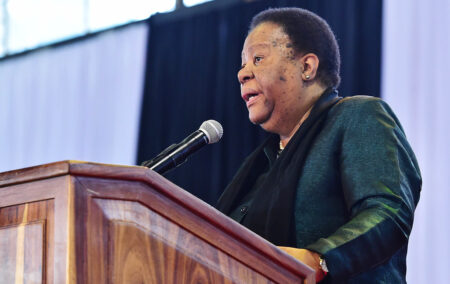Zimbabwe’s economic and political problems are inextricably linked, and can only be solved by Zimbabweans themselves. So says Minister of International Relations and Cooperation Naledi Pandor.
She was speaking at a seminar on ‘The best path to a prosperous Zimbabwe’, which looked at how the Southern African Development Community could contribute towards the lifting of sanctions against Zimbabwe. It featured presentations both from diplomatic and from academic observers.
Pandor drew attention to divisions in the country, which complicated work towards an internal consensus: ‘Political formations in Zimbabwe remain at loggerheads and have apparent deep antipathy towards each other, which makes joint decision-making and planning extremely difficult.’
She added: ‘We would be assisted in playing a positive role if there was a shared notion in Zimbabwe of what had to be done. This is important for us because while we work very closely with the government of Zimbabwe, it would be difficult for us to be seen as only working with the government.’
This echoes a long-standing theme of South African diplomacy towards Zimbabwe – that it could not impose a solution on the country, and that such a solution required internal cooperation.
This stance was in turn criticised as being a de facto expression of the favourable stance of the South African government and ruling African National Congress (ANC) towards Zimbabwe’s ruling ZANU-PF. The latter was repeatedly described as an allied formation of the ANC, while concerns about repression and charges of election rigging were very cautiously handled.
Harsh condemnation was at times made of the opposition Movement for Democratic Change (MDC), including that it was a creature of the American Central Intelligence Agency and part of a ‘regime change’ agenda. In 2003, then foreign minister Aziz Pahad, called on the MDC to work with the government to deal with the country’s problems and not to be a ‘fight-back opposition’.

